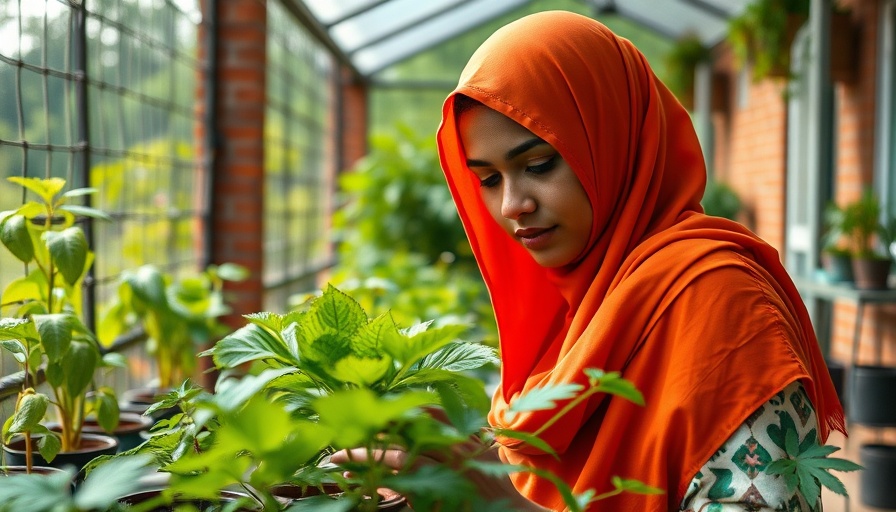
Turning Plants into Profits: Indonesian Women Empowering Nature and Themselves
In the breathtaking hills of West Java, Indonesia, a vibrant initiative is blossoming where local women are harmonizing their livelihoods with environmental conservation. The group, known as Ambu Halimun or "Mothers of Halimun," is not just crafting unique fabrics but is also stitching together the threads of sustainable living and ecological preservation.
Transforming Threatened Flora into Fashion
Deep within Gunung Halimun-Salak National Park, the Ambu Halimun artisans are harnessing the natural beauty of rainforest plants, transforming them into ecoprinted fabrics. By pressing local leaves and flowers such as ferns and marigolds onto cloth and then steaming them, these women are artistically preserving the essence of their environment. Their creations—skirts, scarves, and tote bags—are now being marketed to a global audience, demonstrating how eco-friendly products can appeal to conscious consumers.
Pioneering Sustainable Livelihoods in a Fragile Ecosystem
Indonesia houses a wealth of biodiversity, including countless species that are critically endangered. Alarmingly, the country has lost over 10.7 million hectares of its humid primary forest between 2002 to 2024, largely due to deforestation driven by agricultural expansion and mining. Amidst such environmental turmoil, initiatives like that of Ambu Halimun highlight the critical need for sustainable practices that protect natural resources while creating economic opportunities for marginalized communities.
The Ripple Effect: Training, Skills, and Empowerment
In a bid to combat declining tourism revenues post-pandemic, the Konservasi Ekosistem Alam Nusantara (KIARA) initiated training programs in ecoprinting, sustainable agriculture, and public speaking for local residents. Such initiatives enhance community engagement and ensure that these women not only contribute to environmental conservation but also ascend socio-economically. Rahayu Oktaviani, co-founder of KIARA, aptly emphasizes the importance of empowering women in conservation efforts, stating, "These women will be on the frontlines of conservation because they now have the competence to protect nature." This empowerment further leads to a ripple effect in their communities, fostering a culture of sustainability and stewardship.
Challenges and Opportunities Ahead for Sustainable Visionaries
Nevertheless, the journey of these women is fraught with challenges. With the lure of more profitable yet destructive ventures like logging and mining, scaling small-scale sustainable efforts can feel daunting. Ambu Halimun must confront market competition and secure sufficient returns to warrant their conservation-focused lifestyles. However, the real challenge lies in scaling their operations while maintaining their eco-friendly ethos in a landscape where environmental regulations often take a backseat to economic incentives.
From Local to Global: What It Means for Ethical Consumerism
The story of Ambu Halimun signifies a growing trend towards sustainable fashion—a facet of ethical consumerism that encourages individuals to make informed purchases that promote environmental stewardship. With rising awareness of plastic pollution and climate change, consumers are increasingly seeking out eco-friendly products and sustainable practices. By highlighting the unique stories and lives behind eco-friendly products, retailers can foster greater appreciation and inspire conscious living.
Conclusion: The Future of Sustainable Communities
The inspiring work of Ambu Halimun represents a crucial shift towards integrating sustainability with economic resilience. As their efforts showcase the potential of the circular economy, fostering environmental stewardship through conscious consumption could have far-reaching impacts. The rise of community-oriented, eco-friendly businesses could pave the way for a future where ethical consumption empowers local voices and promotes sustainable practices across the globe.
If you’re interested in supporting sustainable initiatives, consider investing in eco-friendly products. By choosing items created by artisans like the Ambu Halimun, you contribute not only to your style but also to the preservation of biodiversity and support the livelihoods of those championing environmental conservation.
 Add Row
Add Row  Add
Add 



Write A Comment